
Happy Pi Day! Have we lost you already? Don’t worry — we’ll explain. In mathematics, the Greek letter Pi, or π, is used to represent a mathematical constant. Used in mathematics and physics, Pi is defined in Euclidean geometry as the ratio of a circle’s circumference to its diameter. And, approximately, π is equal to 3.14159 — which brings us to Pi Day.
Celebrated on March 14 (a.k.a. 3/14, because 3.14 are the first three digits of the constant π), Pi Day was founded in 1988 by physicist Larry Shaw. Now, mathematicians, scientists and nerds alike celebrate this pseudo-holiday — sometimes with Pi Pie.
According to mathematics professor William L. Schaaf, who wrote about the constant in his work Nature and History of Pi, “Probably no symbol in mathematics has evoked as much mystery, romanticism, misconception and human interest as the number Pi.” So, if you’re feeling a little more excited about math than usual thanks to Pi Day, these films can help you mark the occasion.
A Brilliant Young Mind (2014)
A Brilliant Young Mind (released under the title X+Y outside of the U.S.), stars Sex Education’s Asa Butterfield as Nathan, a teenage mathematics prodigy who has trouble connecting with others. Instead, Nathan finds comfort in numbers. But that comfort grows into a new life path entirely when he’s chosen to represent the U.K. in the International Mathematical Olympiad (IMO).
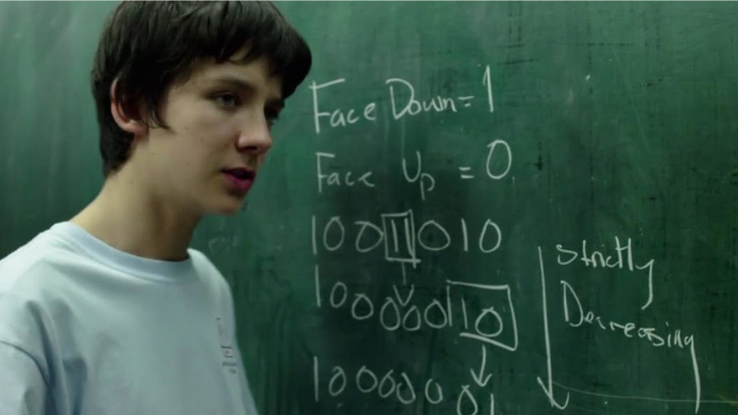
Taking inspiration from the documentary Beautiful Young Minds (2007), Butterfield’s character is based on Daniel Lightwing, an IMO silver medalist who is also on the autism spectrum disorder. Although this might sound like well-trodden (and often poorly executed) Hollywood fare, A Brilliant Young Mind is perceptive, clever and full of heart. And, unlike other films (ahem, 2001’s A Beautiful Mind…), this one doesn’t veer into cringe-territory while centering folks with neurodevelopmental conditions or mental illnesses and disorders.
Shakuntala Devi (2020)
This Hindi-language biographical drama centers on mathematician Shakuntala Devi, who is played brilliantly by Vidya Balan. Dubbed the “human computer,” Devi showed prodigy-level math skills from a young age. During the 1930s, her family discovered that she could solve complex math problems — all in her head.
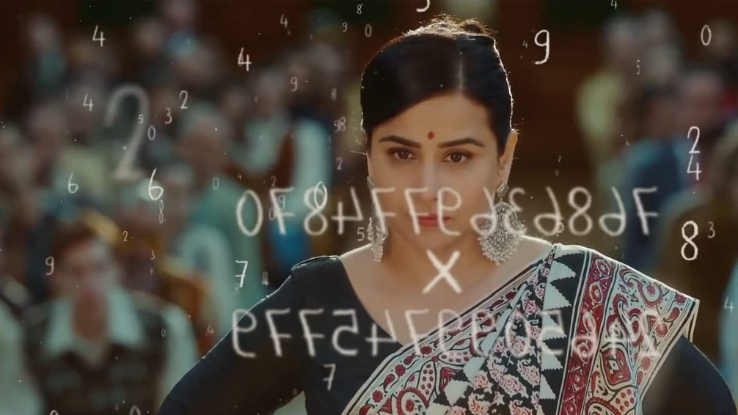
As one might expect, Devi becomes a world-renowned mathematician. When she marries and has a daughter, Devi realizes that she misses doing “math shows”. And while she has no trouble balancing equations, balancing her professional and personal lives might be a tad more complicated.
Hidden Figures (2016)
Have you ever watched a sports drama and felt the sudden urge to pick up soccer, football, ice skating or whatever it is you’re watching? Well, Hidden Figures might just give you the urge to perform complex mathematical equations. Seriously, Taraji P. Henson, who plays real-life NASA pioneer and icon Katherine Johnson, makes chalkboard math look thrilling.
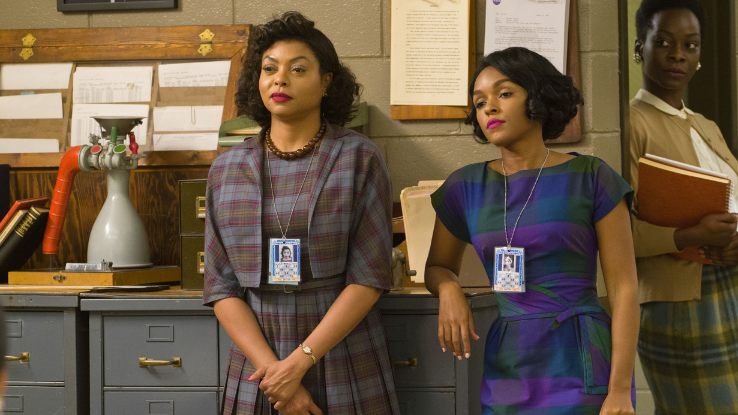
Based on Margot Lee Shetterly’s 2016 book of the same name, Hidden Figures traces how Johnson and her peers — played by Octavia Spencer and Janelle Monáe — not only helmed the U.S. efforts in the “Space Race”, but blazed trails for Black women in a field that’s dominated by white men. While the film isn’t always historically accurate, it does shine a light on unsung heroes like Johnson, thus bringing more visibility to the history textbooks often fail to mention.
Stand and Deliver (1988)
Added to the National Film Registry by the Library of Congress in 2011, Stand and Deliver is one of those films that, upon release, feels like an instant classic. Maybe you saw it for the first time in middle or high school at the end of the year, when you were itching to leave the classroom for summer break. If that’s the case, it’s well worth a rewatch. And, if you’ve never seen Stand and Deliver, queue up your Criterion Channel subscription now.

Based on the story of high school math teacher Jaime Escalante, the film is set in East Los Angeles, at a school with a mostly working-class Latine student population. At first, Escalante (Edward James Olmos) tries to connect with his students through humor — but some of the students, including Angel Guzman (Lou Diamond Phillips) continually question Escalante’s authority.
To make matters worse, the school’s accreditation is at risk due to low test scores. Eager to help his students reach their potential, Escalante attempts to connect with them on a personal level. We won’t spoil the ending, but we will say that the real-life Escalante said the film was “90% truth, 10% drama” — the perfect recipe for success. Not to mention, Olmos received an Oscar nomination for his performance.
Miracle: Letters to the President (2021)
Based on the true story of a family that lived in a roadless, remote area in South Korea’s North Gyeongsang Province, Miracle: Letters to the President is a compelling family drama. It centers on Tae-yoon (Lee Sung-min), an engineer who dreams of building a train station for the village his family calls home.

Tae-yoon’s son, Joon-gyeong (Park Jeong-min), decides to take matters into his own hands. The young math prodigy enlists the help of his girlfriend, Ra-hee (Im Yoon-ah); his sister, Bo-gyeong (Lee Soo-kyung); and other villagers to establish a privately owned and operated train station. Filled with a genuine warmth and humor, Miracle is bolstered by a strong ensemble cast, making it one of 2021’s unsung cinematic delights.
A Brief History of Time (1991)
While you might have watched 2014’s Theory of Everything during Oscar season a few years ago, we strongly recommend watching A Brief History of Time instead. Although it takes its title from Stephen Hawking’s renowned book, this documentary doesn’t purely delve into the nature of cosmology.
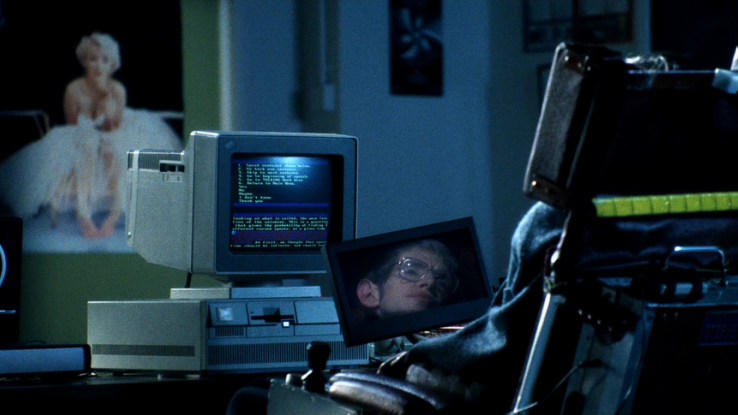
Instead, it offers a biography of the esteemed astrophysicist and cosmologist. Featuring intimate interviews with Hawking’s family, former classmates and colleagues, the documentary feels balanced — part portrait, part science lesson. And director Errol Morris makes great use of visual effects to depict Hawking’s complex theoretical physics and meditations on cosmology.
The Imitation Game (2014)
Nominated for several Oscars and BAFTAs back when it hit screens, The Imitation Game is based on the 1983 biography Alan Turing: The Enigma, which was penned by Andrew Hodges. The film, however, takes its title from the name of the game the esteemed cryptanalyst suggested when it came to answering a rather loaded question: can machines think?

Not familiar with Turing’s story? During World War II, he decrypted German intelligence for the British by designing a machine that can decode words he already knows to be present in certain messages. Despite laying the groundwork for the modern computer, Turing was subjected to immense cruelty when government officials learned he was gay. In 2013, Queen Elizabeth II granted Turing a Royal Pardon for his contributions — a newsworthy turn that, hopefully, brought more visibility to all facets of his story.
Good Will Hunting (1997)
In this Oscar-winning film, Robin Williams plays a therapist who’s assigned to work with an incredibly smart young man, Will Hunting (Matt Damon). Will works as a janitor at the Massachusetts Institute of Technology (MIT); one day, he anonymously solves a challenge a math professor wrote out on their chalkboard.
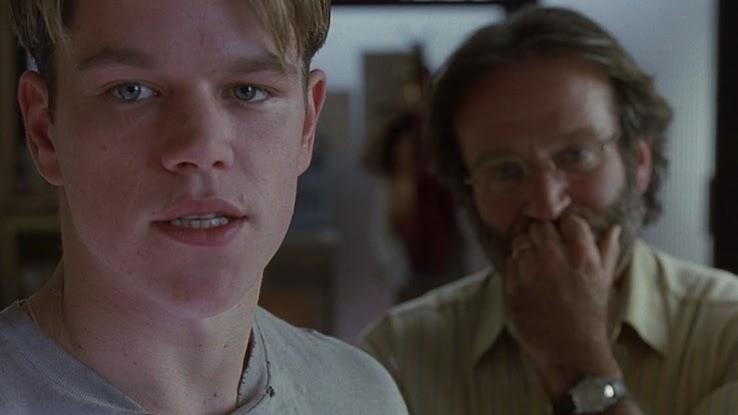
The professor eventually catches Will solving another math challenge. But before Will can act on reaching his full potential in mathematics, he assaults a cop, and, as part of his persecution agreement, sees a therapist (Williams).
The movie was actually a final assignment for a playwriting class Damon was taking at Harvard University. He was supposed to turn in a one-act play, but ended up submitting a 40-page script instead. In the end, Williams earned an Oscar for Best Supporting Actor — and Damon and his longtime buddy, Ben Affleck, nabbed an Oscar for Best Original Screenplay.
Pi (1998)
Looking for a math-centric film that’s less biographical and/or uplifting and a bit more neo-noir psychological horror? Try Pi, Darren Aronofsky’s feature-length directorial debut. Before Requiem for a Dream (2000) or Black Swan (2010), Aronofsky wrote about a paranoid mathematician, Max Cohen (Sean Gullette).
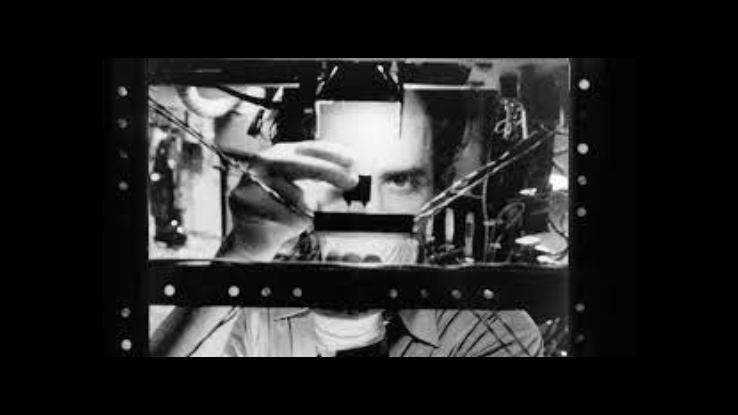
The unemployed number theorist believes he can unlock the universal patterns we see in nature with a key number, so he builds an advanced computer system — and falls into a rabbit hole of deep questions about the universe, hallucinations, paranoid delusions and headaches that give the protagonist of Eraserhead (1977) a run for his money.
Pi has it all. There’s mysticism, there’s obsession — there’s the fundamental clash of human irrationality and the regularity of mathematics that compose our world. If you want something a bit mind-bending or theory-inducing, Arronfsky’s classic is what The Number 23 (2007) dreamed of being — but with more black-and-white arthouse style.






